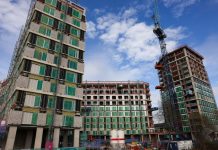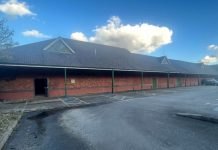Senior figures in the Bristol office of global property consultancy Knight Frank have welcomed the city’s clean air plans, which were approved by Bristol City Council this week (5th November).
If the plans are adopted unchanged all privately owned diesel vehicles will be banned from the city centre between 7am and 3pm from March 2021, and commercial vehicles that do not meet emission standards will have to pay a charge of either £9 or £100 a day to enter a clean air zone (CAZ).
Commenting on the announcement, Steve Oades, head of the Bristol commercial property team of Knight Frank, said: “This is a bold step but one which sets out a path that I believe other cities around the UK – and the world – will be studying closely, and looking to copy. There will be short-term difficulties as everyone adjusts to the new rules that climate change is forcing upon us all, but I think we should feel proud to be Bristolians and part of such a progressive city.”
Martin Booth, who heads up the offices agency team, added: “Large parts of UK city centres are owned by national and international investors, and this step by Bristol will appeal to those that want to strengthen their green credentials and own buildings in a city centre which is environmentally leading the way.
“Occupiers too can reflect upon the opportunities that will arise to create a much more pleasant working environment for the city. There is no doubt all cities will have to move towards steps like these but Bristol is going to be the first.”
Commenting on the impact on the city’s industrial property sector Russell Crofts, head of Knight Frank’s Industrial & Logistics team, said: “As the city takes this next step in its evolution, changes will need to be made. Companies based near the city centre with large HGV fleets will no doubt be looking to relocate over time to the city’s edges but that will be part of a wider evolving logistics change. This will ultimately see goods still being shipped around the country’s national motorway network in diesel vehicles but then delivered into cities by local fleets of electric vans.
“To enable all these changes to take place infrastructure improvements will be required, from improved public transport to increased electrical power supply grids, but the upheaval will be worth it. Bristol needs to be outward looking to prosper and these planned clean air measures are a brave step along that path.”





















